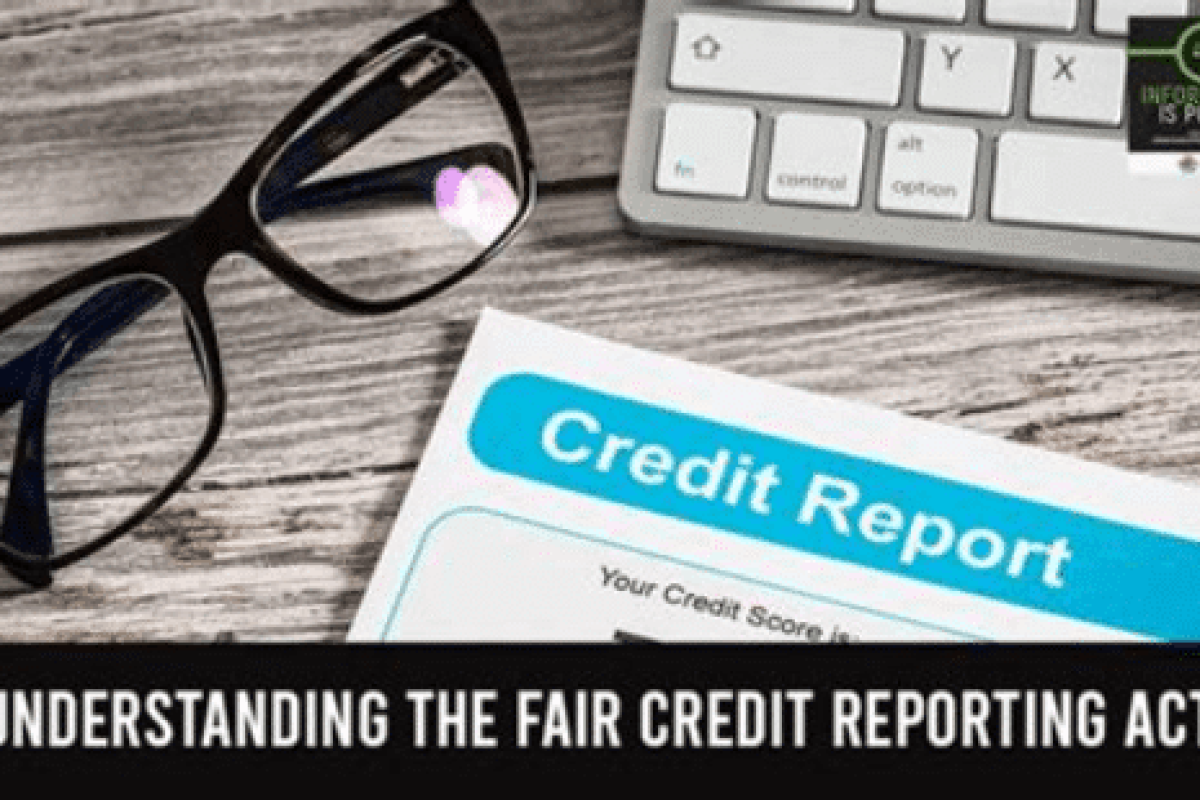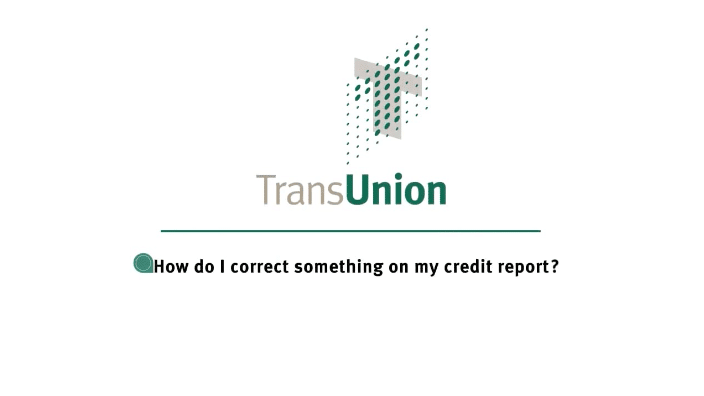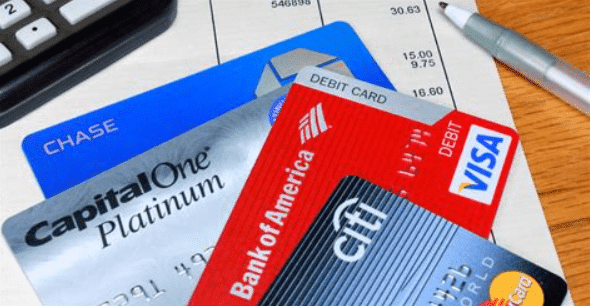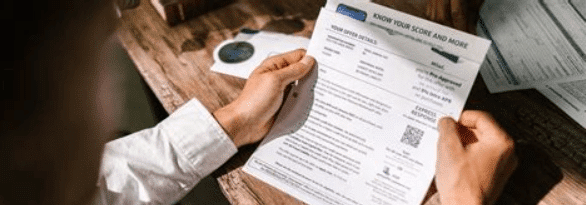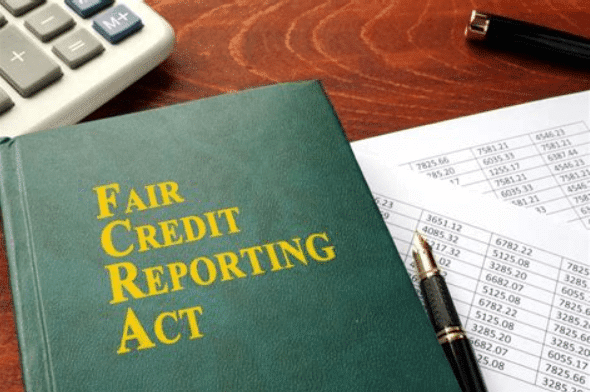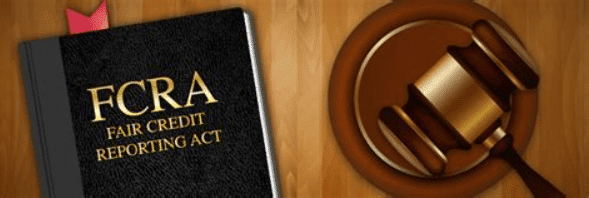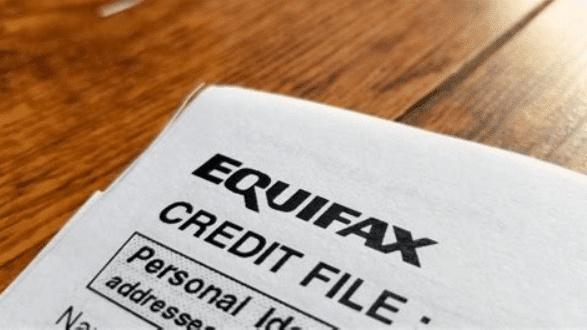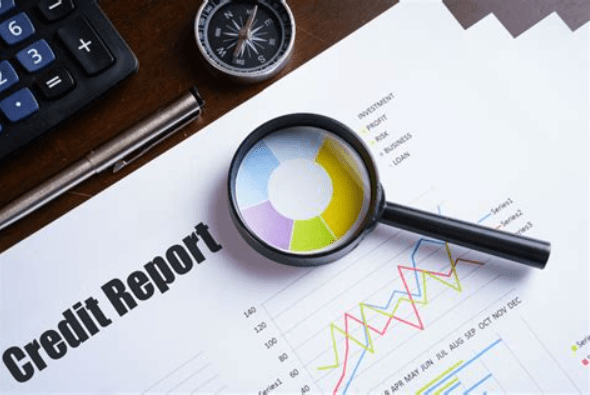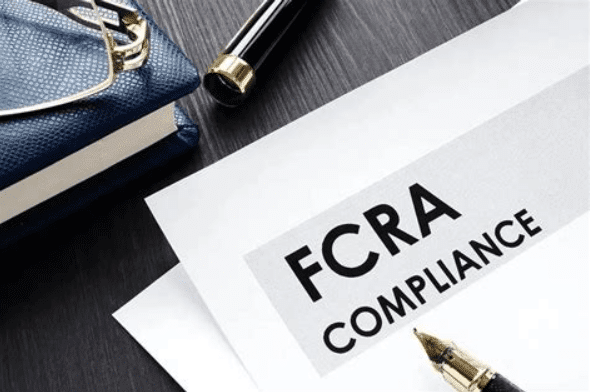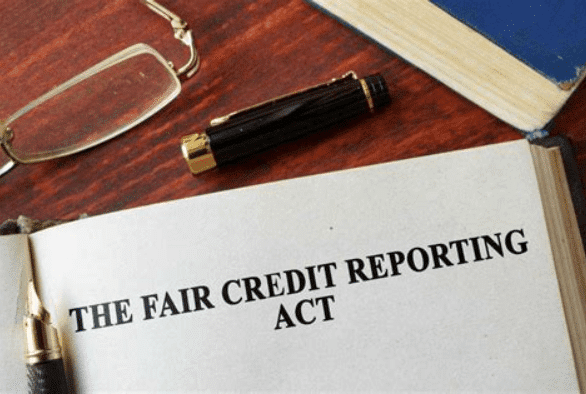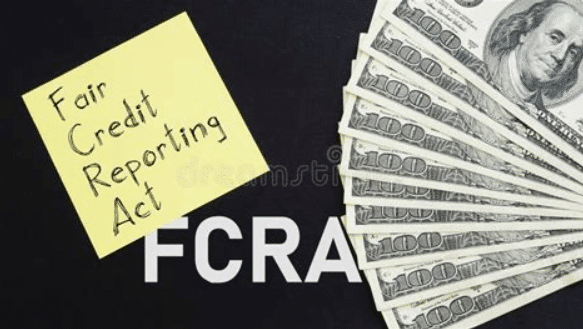When identifying inaccuracies on your credit report, it is advisable to promptly initiate a dispute process with Equifax. Engaging in this procedure does not influence your credit score, except in cases where erroneous information is rectified, potentially resulting in an improvement. Safeguarding your credit score and mitigating interactions with debt collectors can be facilitated through ZumaZip.com.
Navigating interactions with creditors and credit reporting agencies can be arduous. Although maintaining a favorable credit standing is imperative for securing loans, acquiring property, and advancing professionally, monitoring one’s credit score often ranks low on individuals’ list of enjoyable tasks.
Nevertheless, it remains imperative to regularly review your credit report for accuracy. Given that a credit report serves as a primary means by which financial institutions and other entities evaluate your fiscal reputation and payment reliability, any adverse notations can significantly impact your access to favorable credit terms.
Conducting an annual review of your credit report and ensuring its currency is among the best practices for financial management. On a chosen date each year, obtaining copies of your credit reports from all three major credit reporting bureaus enables you to identify any discrepancies. Should inaccuracies be identified, submitting disputes accompanied by evidence is essential.
While engaging in an annual credit review may not be particularly engaging, it serves as a proactive measure to shield oneself from potential financial repercussions resulting from significant inaccuracies.
This article will expound on the process of obtaining a copy of your Equifax credit report and initiating dispute resolutions.
How can I get a copy of my Equifax credit report?
Under federal regulations, consumers are entitled to obtain a complimentary copy of their credit report from each major credit reporting agency on an annual basis. Should you not have availed yourself of this opportunity within the past year, you may easily do so by visiting the Annual Credit Report website and adhering to the provided guidelines.
Even if you have previously accessed your Equifax credit report within the past year, you may still have the option to procure another copy free of charge through the Equifax website. Upon registration for an Equifax account, the credit reporting agency will furnish you with a copy of your report along with your current credit score.
Equifax additionally presents various services geared towards monitoring your credit on a monthly basis, potentially facilitating credit score enhancement. While an initial month of these services is typically complimentary, continued utilization incurs a monthly fee. It is imperative to cancel your subscription to preempt future charges unless you intend to persist with the services.
What should I do after I get a copy of my Equifax credit report?
Upon obtaining a copy of your Equifax credit report, it is advisable to print it out and proceed with a thorough examination. Arm yourself with a notepad, pen, and highlighter for this task.
Examine every facet of your credit report meticulously, leaving no detail unchecked, including seemingly insignificant elements like your name or date of birth. Given the volume of consumer data handled by credit reporting agencies, instances of customer detail mix-ups are not uncommon.
Verify the names of all listed creditors to ensure recognition. Scrutinize account numbers, maximum credit allowances, and current reported balances. Pay close attention to the account opening dates and meticulously review each monthly report from the respective creditors.
Identify and highlight any discrepancies observed, documenting them in your notepad. It is advisable to file a dispute for each identified mistake, irrespective of its perceived severity or impact on your credit score.
Should I send my disputes directly to Equifax or talk to my creditor?
The course of action for disputing inaccuracies on your credit report depends on the nature of the dispute.
For disputes concerning personal details such as your address or date of birth, it is recommended to directly address Equifax.
Should the disputes pertain to information provided by creditors, it is advisable to first attempt contact with the respective creditors. Notify them of the inaccuracies found on your credit report and provide detailed descriptions of the errors. While some discrepancies may be resolved through telephone communication, others may require submission of supporting evidence should the creditor contest your findings.
If the creditor remains unwilling to rectify the adverse reporting even after submission of documentation, it becomes necessary to escalate the matter directly to Equifax and initiate a formal dispute. Equifax will meticulously review the details of your dispute along with any evidence provided. Additionally, Equifax will liaise with the relevant creditor to gather pertinent information. Following the completion of the investigation, Equifax will either expunge the inaccurate details from your credit report or provide an explanation if deletion is not feasible.
Let’s consider an example.
Example: Michelle finds herself in a predicament where she is being sued for a debt erroneously attributed to her, resulting in a significant decline in her credit score. Upon conducting an investigation, Michelle unearths the distressing reality that she has fallen victim to identity theft, with an unauthorized credit card account opened in her name. Taking proactive steps, Michelle utilizes ZumaZip to respond to the lawsuit with an Answer document, effectively averting a default judgment.
Subsequently, Michelle initiates contact with the creditor to report the fraudulent account. However, if the credit card company fails to take appropriate action to address the issue, Michelle may find it necessary to escalate the matter further. In such a scenario, she may need to engage with Equifax and the other credit reporting bureaus to dispute the fraudulent account and mitigate the adverse impact on her credit profile.
What if my Equifax credit report shows signs of identity theft?
Upon detecting signs of identity theft, such as unfamiliar accounts or erroneous collection notices on your credit report, it is imperative to take immediate action to rectify the situation.
Begin by reaching out to the creditor listed on your report. In some instances, individuals may overlook existing accounts with lenders or fail to recognize the creditor’s name. It is possible that you legitimately owe money to the creditor but have simply forgotten about the account.
If you cannot reconcile the reported account with your records, it is likely that someone has illicitly obtained your personal information to open an account with the lender. In such cases, it is advisable to visit the Federal Trade Commission (FTC) website and file a formal complaint for identity theft. Additionally, notify your local law enforcement agency to document the incident.
Victims of identity theft may find it beneficial to seek legal counsel. Criminals may exploit stolen personal information for various unlawful activities, including financial fraud. A qualified attorney can provide guidance on the necessary steps to restore your identity and safeguard yourself against further harm.
How long will it take Equifax to resolve my dispute?
Upon filing a dispute with Equifax, the credit reporting agency is obligated to conduct an investigation within a period of 30 days or remove the disputed information. Should additional information be required to reach a decision, a representative from Equifax will reach out to you accordingly.
You can track the progress of your Equifax dispute online by logging into your account. Additionally, upon completion of the dispute process, Equifax will send you a letter detailing the results of the investigation. This correspondence will also furnish you with supplementary resources should you wish to contest the findings.
Will my credit score improve if I dispute negative information on my Equifax credit report?
Following successful removal of negative information from your credit report through disputes, it is typical to observe improvements in your credit score within a timeframe of 30 to 60 days.
It’s important to note that not all disputes will yield substantial increases in your credit score. Removing negative items that are over three years old may result in only marginal score improvements. Conversely, more recent negative information tends to have a more pronounced impact on your credit score.
In conjunction with dispute resolutions, cultivating sound financial practices such as timely payment of obligations can contribute significantly to enhancing your creditworthiness. By demonstrating responsible financial behavior, you stand to see gradual increases in your credit score, thereby positioning yourself as a desirable candidate for premium loans and favorable mortgage rates.
Can I submit multiple disputes to Equifax at once?
Absolutely, you have the option to submit multiple disputes to Equifax if you uncover more than one error on your credit report. The procedure remains consistent across all disputes. You’ll be required to furnish Equifax with a comprehensive list of the disputes along with any supporting evidence you possess pertaining to the errors.
Upon receipt, Equifax will thoroughly review each dispute and reach out to the respective creditors for supplementary information as necessary. If the creditor fails to provide substantiation for the reported error, Equifax will proceed to expunge the mistake from your credit report.
Equifax is mandated to conclude its investigation within a 30-day timeframe or delete the error from your credit report accordingly.
Is it better to file my Equifax dispute online or via the mail?
Either option will result in similar results.
If you file the dispute by mail, you can request certified delivery to ensure Equifax receives your request. You can also make a copy of your full dispute letter and your evidence so you have it to refer to.
Equifax will accept multiple disputes within your letter. Ensure that the contents are easy to follow and that you include appropriate documentation to give credence to your claims.
You can send your disputes directly to Equifax at this address:
Equifax Information Services, LLC
P.O. Box 740256
Atlanta, GA 30374-0256
If you file your dispute online, you’ll be able to track it easily with the confirmation code you receive after submitting your request. You’ll also be able to view the results whenever you log in to your account.
To submit a dispute online, simply visit myEquifax.
Can I file my dispute over the phone?
Yes, initiating a dispute over the phone with Equifax is indeed an option. However, it’s worth noting that by opting for this method, you won’t have a formal record of your communication nor will you be able to provide supporting evidence to bolster your claim.
For those with compelling evidence to substantiate their dispute, it’s advisable to pursue the online or mail-based dispute channels. However, if you prefer to lodge your dispute via telephone, you can reach Equifax at (866) 349-5191.
Equifax operates its phone dispute service from 8 a.m. to midnight EST, seven days a week, ensuring accessibility for consumers seeking resolution.
How often do credit reports contain errors?
According to an FTC study, approximately one in four people find errors on their credit reports that can impact their ability to obtain a loan. That number is especially concerning given the importance many financial institutions put on credit reports and scores.
However, the same study found that four of five people who file disputes with the credit reporting bureaus were able to correct the issue.
Credit reporting bureaus aren’t out to get you; they will take action if you notify them of mistakes. However, you must take the initiative to review your credit report regularly.
Reviewing your credit report helps catch errors
While checking your Equifax credit report may not be exciting, it can help you catch serious errors. Once you note any mistakes, report them to Equifax so they can begin the investigation process. Equifax must respond to your request within 30 days and take the appropriate actions to remove the erroneous information.
Protect your credit score with ZumaZip.com
When faced with overdue debt, it’s common for your credit score to suffer. However, inaccuracies and fraudulent debt information may also permeate your credit report.
In scenarios where you’re a victim of identity theft or if a creditor transfers your debt to a collections agency that reports inaccurate details to the credit bureaus, there are steps you can take.
Upon initial contact from a debt collector asserting your indebtedness, it’s crucial to respond promptly with a Debt Validation Letter within 30 days. This obligates the collector to substantiate the debt, and should they fail to do so, they’re likely to cease pursuit.
Should the collector persist in reporting erroneous information, you have the recourse to file a dispute, citing the lack of proper debt validation. Experian, upon investigation, will engage with the collectors and expunge the invalid information from your credit report once its veracity is disproven.
Protect your credit score and respond to debt collectors with ZumaZip.com.
Learn more about how a Debt Validation Letter can help you.
What is ZumaZip?
ZumaZip is a convenient solution designed to streamline your response to a debt collection lawsuit. Here’s a breakdown of what you can expect when you use ZumaZip:
Firstly, you’ll access our user-friendly web application, which guides you through the process step by step. You’ll be prompted to answer a series of questions related to your specific situation. Once you’ve completed the questionnaire, you have the option to either print out the finalized forms and mail them to the appropriate courts yourself, or you can opt to utilize ZumaZip’s services to file them on your behalf. Additionally, if you choose this option, an attorney will review your document for added peace of mind.
If you’re seeking guidance on how to effectively respond to a debt collection lawsuit, ZumaZip can provide the assistance you need. Feel free to explore our FAQs for more information on what ZumaZip has to offer.
What if I haven’t been sued yet?
If you’ve only received a collections notice, but not a lawsuit, the best way to respond is with a Debt Validation Letter. When a debt collector contacts you in any way, whether it’s by phone or mail, you can respond by formally requesting a debt validation with a Debt Validation Letter . This letter notifies the collector that you dispute the debt and forces them to provide proof you owe the debt. They can’t call you or continue collecting until they provide validation of the debt. This flowchart shows how you can use a Debt Validation Letter to win.
Get started with a Debt Validation Letter here.
How to Answer a Summons for debt collection in all 50 states
Here’s a list of guides on how to respond to a debt collection lawsuit in each state:
- Alabama
- Alaska
- Arizona
- Arkansas
- California
- Colorado
- Connecticut
- Delaware
- Florida
- Georgia
- Hawaii
- Idaho
- Illinois
- Indiana
- Iowa
- Kansas
- Kentucky
- Louisiana
- Maine
- Maryland
- Massachusetts
- Michigan
- Minnesota
- Mississippi
- Missouri
- Montana
- Nebraska
- Nevada
- New Hampshire
- New Jersey
- New Mexico
- New York
- North Carolina
- North Dakota
- Ohio
- Oklahoma
- Oregon
- Pennsylvania
- Rhode Island
- South Carolina
- South Dakota
- Tennessee
- Texas
- Utah
- Vermont; Vermont (Small Claims court)
- Virginia
- Washington
- West Virginia
- Wisconsin
- Wyoming
Guides on how to beat every debt collector
Hey there! Facing off against a debt collector can feel like a daunting challenge, but fear not! We’re here to help you navigate through it all with our handy guides designed to assist you in beating every debt collector you encounter. Whether you’re facing a new lawsuit or dealing with a persistent collector, we’ve got your back. Stay positive, stay informed, and let’s tackle this together!
- Absolute Resolutions Investments LLC
- Accredited Collection Services
- Alliance One
- Amcol Clmbia
- American Recovery Service
- Asset Acceptance LLC
- Asset Recovery Solutions
- Associated Credit Services
- Autovest LLC
- Cach LLC
- Cavalry SPV I LLC
- Cerastes LLC
- Colinfobur
- Covington Credit
- Crown Asset Management
- CTC Debt Collector
- Cypress Financial Recoveries
- Delanor Kemper & Associates
- Eagle Loan of Ohio
- Educap
- Estate Information Services
- FIA Card Services
- Forster & Garbus
- Freshview Solutions
- Fulton Friedman & Gullace LLP
- Harvest Credit Management
- Howard Lee Schiff
- Hudson & Keyse LLC
- Integras Capital Recovery LLC
- Javitch Block
- Jefferson Capital Systems LLC
- LVNV Funding
- Mannbracken
- Mariner Finance
- Medicredit
- Michael J Adams PC
- Michael J Scott
- Midland Funding LLC
- Mullooly, Jeffrey, Rooney & Flynn
- Mountain Land Collections
- MRS Associates
- National Collegiate Trust
- Nationstar Foreclosure
- Northstar Capital Acquisition
- NCEP LLC
- NRC Collection Agency
- OneMain Financial
- Palisades Collection LLC
- Pallida LLC
- Paragon Revenue Group
- Pinnacle Collections Agency
- PMAB LLC
- Portfolio Recovery Associates
- Provest Law
- PYOD LLC
- Reunion Student Loan Finance Corporation
- Revenue Group
- Regents and Associates
- RSIEH
- Salander Enterprises LLC
- Second Round Sub LLC
- Security Credit Services
- Sherman Financial Group
- Suttell and Hammer
- T-Mobile
- Transworld Systems
- Tulsa Teachers Credit Union
- UCB Collection
- Velo Law Office
- Velocity Investments
- Waypoint Resource Group
- Weinberg and Associates
- Wolpoff & Abramson
Settle your medical debt
Having a health challenge is stressful, but dealing medical debt on top of it is overwhelming. Here are some resources on how to manage medical debt.
- Am I Responsible for My Spouse’s Medical Debt?
- Do I Need a Lawyer for Medical Bills?
- Do I Need a Lawyer to Fight Medical Bill Debt?
- Does Bankruptcy Clear Medical Debt?
- How Much Do Collection Agencies Pay for Medical Debt?
- How to Find Medical Debt Forgiveness Programs
- Is There a Statute of Limitations on Medical Bills?
- Medical Debt Statute of Limitations by State
- Summoned to Court for Medical Bills — What Do I Do?
- Summoned to Court for Medical Bills? What to Do Next
Stop calls from Debt Collectors
Do you keep getting calls from an unknown number, only to realize that it’s a debt collector on the other line? If you’ve been called by any of the following numbers, chances are you have collectors coming after you, and we’ll tell you how to stop them.
- 800-390-7584
- 800-289-8004
- 800-955-6600
- 877-366-0169
- 877-591-0747
- 800-278-2420
- 800-604-0064
- 800-846-6406
- 877-317-0948
- 888-899-4332
- 888-912-7925
- 202-367-9070
- 502-267-7522
Other wage garnishment resources
- Bank Account Garnishment and Liens in Texas
- Can I Stop Wage Garnishment?
- Can My Wife’s Bank Account Be Garnished for My Debt?
- Can Payday Loans Garnish Your Wages?
- Can pensions be garnished?
- Can Private Disability Payments Be Garnished?
- Can Social Security Disability Be Garnished?
- Can They Garnish Your Wages for Credit Card Debt?
- Can You Stop a Garnishment Once It Starts?
- Guide to Garnishment Limits by State
- How Can I Stop Wage Garnishments Immediately?
- How Long Before a Creditor Can Garnish Wages?
- How Long Does It Take to Get Garnished Wages Back?
- How to Fight a Wage Garnishment
- How to Prevent Wage Garnishment
- How to Stop a Garnishment
- How to Stop Social Security Wage Garnishment
- How to Stop Wage Garnishment — Everything You Need to Know
- New York Garnishment Laws – Overview
- Ohio Garnishment Laws — What They Say
- Wage Garnishment Lawyer
- What Is Wage Garnishment?
Guides on Arbitration
If the thought of going to court stresses you out, you’re not alone. Many Americans who are sued for credit card debt utilize a Motion to Compel Arbitration to push their case out of court and into arbitration.
Below are some resources on how to use an arbitration clause to your advantage and win a debt lawsuit.
- How Arbitration Works
- How to Find an Arbitration Clause in Your Credit Agreement
- How to Make a Motion to Compel Arbitration
- How to Make a Motion to Compel Arbitration in Florida
- How to Make a Motion to Compel Arbitration Without an Attorney
- How Credit Card Arbitration Works
- Motion to Compel Arbitration in California
- Sample Motion to Compel Arbitration
Federal Debt Collection Laws Can Protect You
Knowing your rights makes it easier to stand up for your rights. Below, we’ve compiled all our articles on federal debt collection laws that protect you from unfair practices.
- 15 USC 1692 Explained
- Does the Fair Credit Reporting Act Work in Florida?
- FDCPA Violations List
- How to File an FDCPA Complaint Against Your Debt Collector (Ultimate Guide)
- How to Make a Fair Debt Collection Practices Act Demand Letter
- How to Submit a Transunion Dispute
- How to Submit an Equifax Dispute
- How to Submit an Experian Dispute
- What Debt Collectors Cannot Do — FDCPA Explained
- What Does Account Information Disputed by Consumer Meets FCRA Requirements Mean?
- What does “meets FCRA requirements” mean?
- What does FCRA stand for?
- What is the Consumer Credit Protection Act
Resolve Your Debt with Your Creditor
Some creditors, banks, and lenders have an internal collections department. If they come after you for a debt, ZumaZip can still help you respond and resolve the debt. Here’s a list of guides on how to resolve debt with different creditors.
- American Express; American Express – Debt Collection
- Bank of America
- Barclay
- Best Buy Credit Card
- Capital One
- Chase
- Credit One Bank
- Old Navy Credit Card
- PayPal Synchrony Card
- Regional Finance
- Retailers National Bank
- Reunion Student Loan Finance Corporation
- SYNCB/PPEXTR
- Synchrony Bank
- Synchrony Walmart Card
- Target National Bank
- Webbank
- Wells Fargo
- Can I Pay My Original Creditor Instead of a Debt Collection Agency?
- Can I Settle a Debt with the Original Creditor?
Check the Status of Your Court Case
Don’t have time to go to your local courthouse to check the status of your case? We’ve created a guide on how to check the status of your case in every state, complete with online search tools and court directories.
- Alabama Court Case Search—Find Your Lawsuit
- Alaska Court Case Search — Find Your Lawsuit
- Arizona Court Case Search – Find Your Lawsuit
- Arkansas Court Case Search — Find Your Lawsuit
- California Court Case Search- Find Your Lawsuit
- Colorado Court Case Search — Find Your Lawsuit
- Connecticut Case Lookup — Find Your Court Case
- Delaware Court Case Search — Find Your Lawsuit
- Florida Court Case Search — Find Your Lawsuit
- Georgia Court Case Search — Find Your Lawsuit
- Hawaii Court Case Search — Find Your Lawsuit
- Idaho Court Case Search – Find Your Lawsuit
- Illinois Court Case Search — Find Your Lawsuit
- Indiana Court Case Search — Find Your Lawsuit
- Iowa Court Case Search — Find Your Lawsuit
- Kansas Court Case Search — Find Your Lawsuit
- Kentucky Court Case Search — Find Your Lawsuit
- Louisiana Court Case Search — Find Your Lawsuit
- Maine Court Case Search — Find Your Lawsuit
- Maryland Court Case Search — Find Your Lawsuit
- Massachusetts Court Case Search — Find Your Lawsuit
- Michigan Court Case Search — Find Your Lawsuit
- Minnesota Court Case Search — Find Your Lawsuit
- Mississippi Court Case Search — Find Your Lawsuit
- Missouri Court Case Search — Find Your Lawsuit
- Montana Court Case Search — Find Your Lawsuit
- Nebraska Court Case Search — Find Your Lawsuit
- Nevada Court Case Search — Find Your Lawsuit
- New Hampshire Court Case Search — Find Your Lawsuit
- New Jersey Court Case Search—Find Your Lawsuit
- New Mexico Court Case Search – Find Your Lawsuit
- New York Case Search — Find Your Lawsuit
- North Carolina Court Case Search — Find Your Lawsuit
- North Dakota Court Case Search — Find Your Lawsuit
- Ohio Court Case Search — Find Your Lawsuit
- Oklahoma Court Case Search — Find Your Lawsuit
- Oregon Court Case Search — Find Your Lawsuit
- Pennsylvania Court Case Search — Find Your Lawsuit
- Rhode Island Court Case Search — Find Your Lawsuit
- South Carolina Court Case Search — Find Your Lawsuit
- South Dakota Court Case Search — Find Your Lawsuit
- Tennessee Court Case Search — Find Your Lawsuit
- Texas Court Case Search — Find Your Lawsuit
- Utah Court Case Search — Find Your Lawsuit
- Vermont Court Case Search — Find Your Lawsuit
- Virginia Court Case Search — Find Your Lawsuit
- Washington Court Case Search — Find Your Lawsuit
- West Virginia Court Case Search — Find Your Lawsuit
- Wisconsin Court Case Search — Find Your Lawsuit
- Wyoming Court Case Search — Find Your Lawsuit

